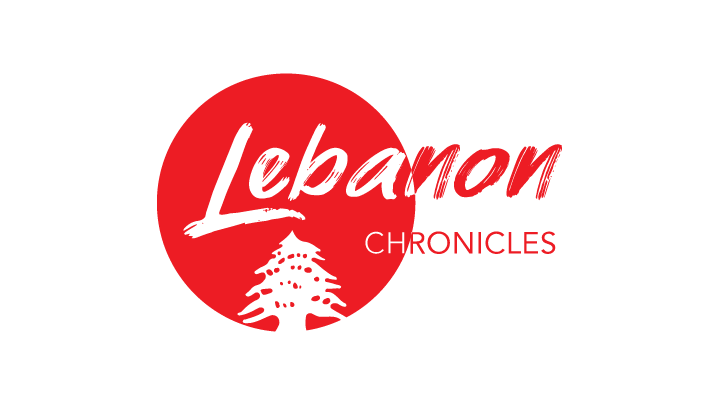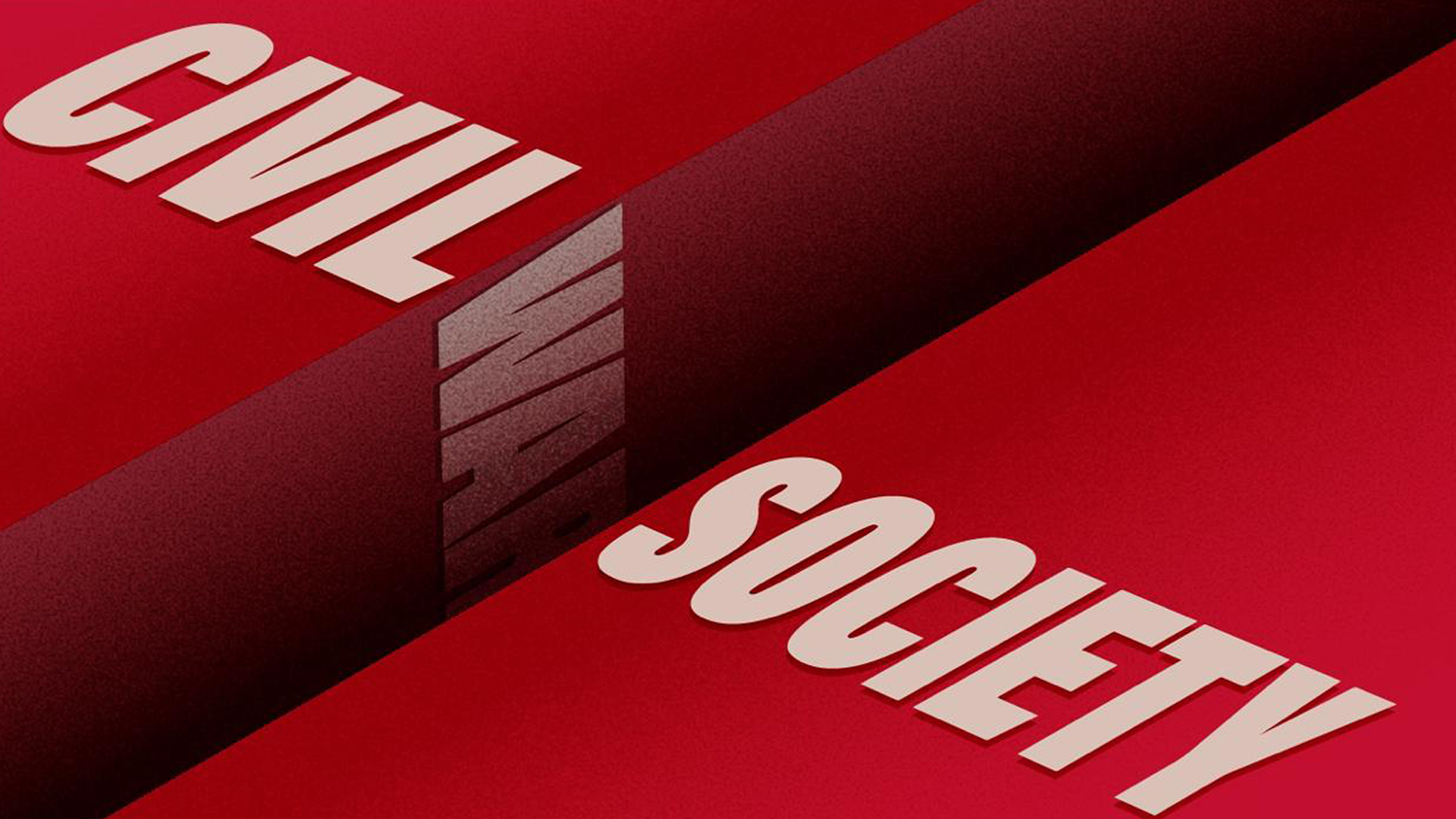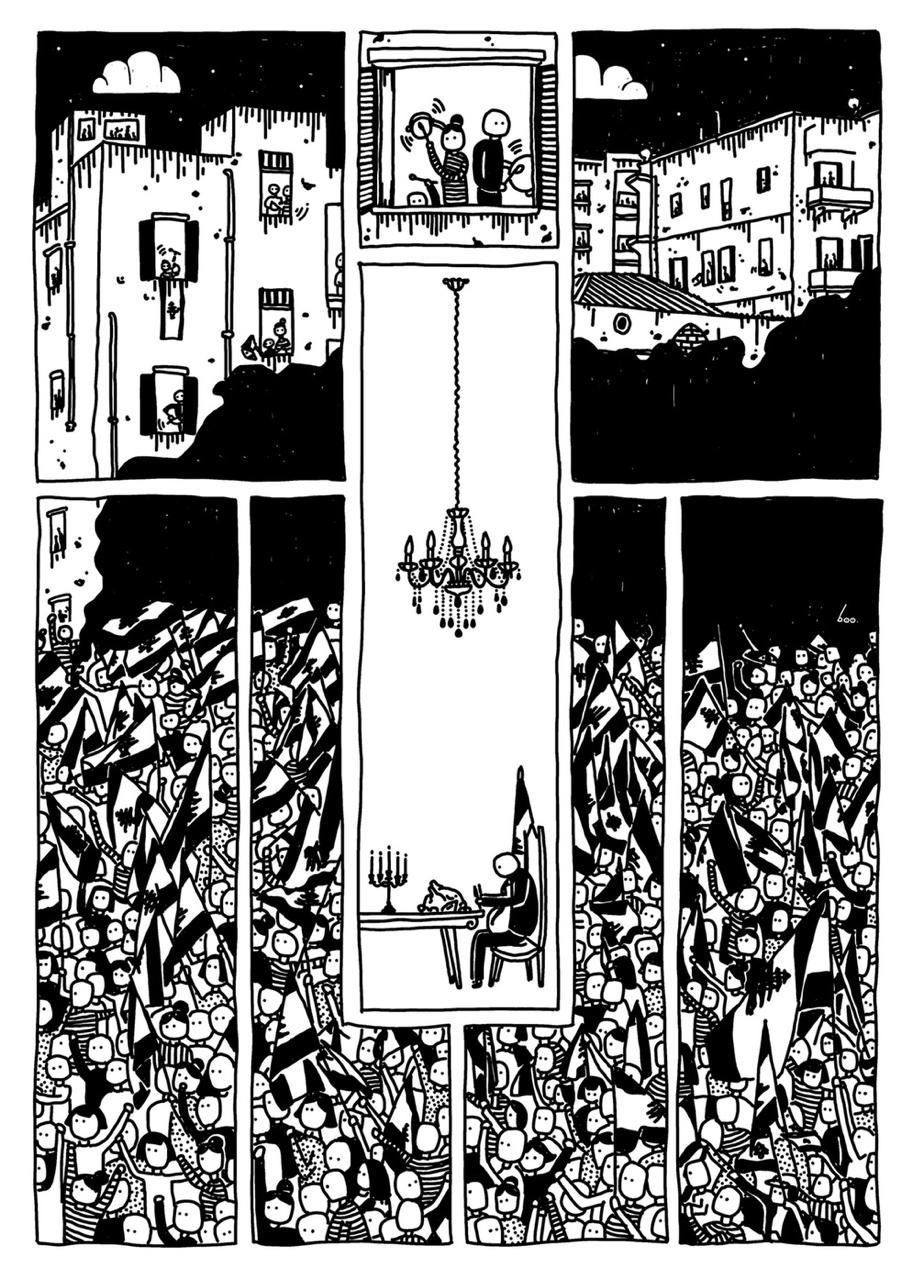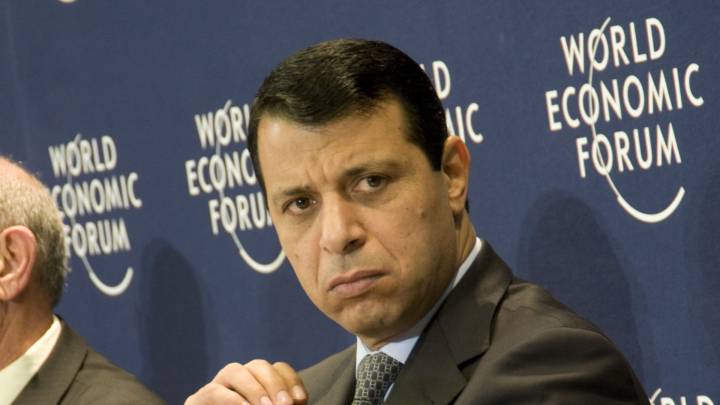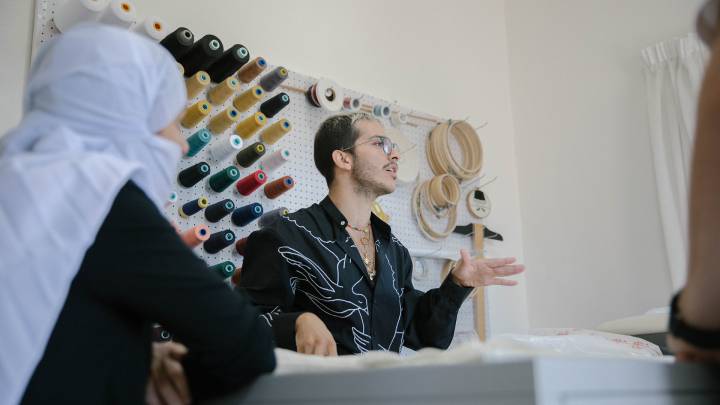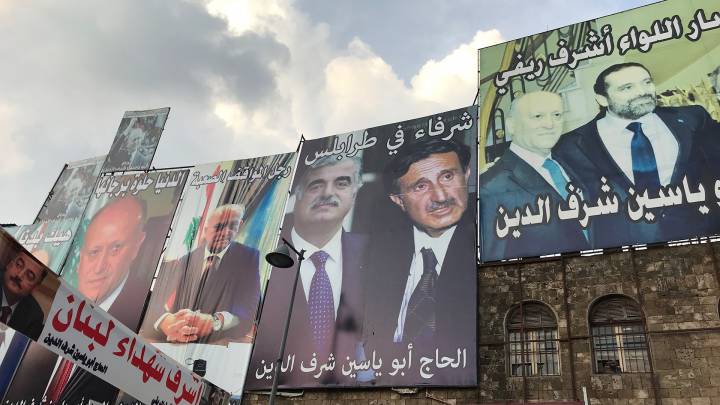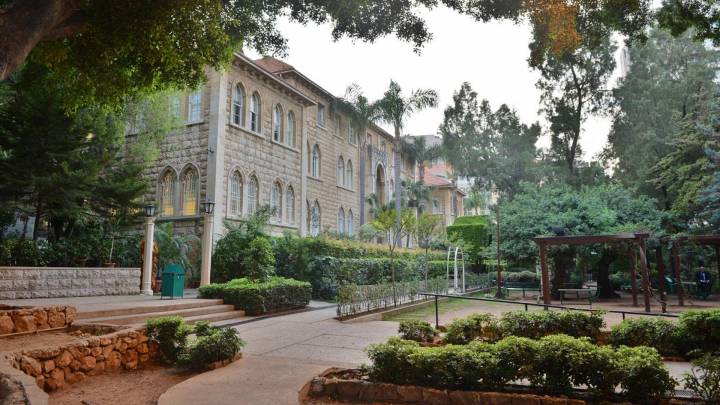Three decades after the end of the Civil War, Lebanese society is still divided along sectarian lines. The younger generation strives to change their parents’ mindset.
This New Year’s Eve, while people around the world exchange greetings for what is to come, Lebanese, once again, will be mostly discussing politics. Topics range from the economic crisis and the protests to the Beirut port explosion and the government’s response to the pandemic. These discussions can hardly be avoided, as they occur in our homes, within our families. I myself have had my fair share of them.
My mother sides with Michel Aoun. She has supported his political views avidly since the late 1980s. Back then, the man who is now the head of the Lebanese state was commander of the Lebanese Army. I, on the other hand, have spent the last year publishing political cartoons depicting the failures of the state in general, and the President, his party and his allies in particular. As one can imagine my mother and I are often on the brink of a bitter argument, it takes great mutual efforts to maintain our cordial relationship.
Normally, whenever I wish to avoid political talk, I discuss with her everyday topics or work. However, this strategy has now also become unsuccessful: My mother is a banker. This – along with that of a politician – is probably the most controversial job in Lebanon right now. Because last year banks unlawfully locked their depositors out of their dollar accounts and restricted cash withdrawals.
Sharing the DNA with a woman whose company, along with others, has confiscated my life savings and jeopardised my future, feels awkward. Not to forget her favorite ‘Zaim’ (the Arabic word for the leader of a confessional or political group), the 87-year-old President who famously said “we’re going to hell” while answering a reporter’s question about the future of Lebanon.
In an attempt to resolve this predicament, a few months after the 2019 protests had broken out, I invited my mother over to my apartment and made her lunch, before plunging into a two-hour-conversation about politics and the ongoing crisis. I will spare you the details of our arguments, but I can say that after this lunch talk both her and I understood how our respective opinions were formed. I have observed the frustrating corruption of the Lebanese political class, that has fueled my eagerness for change and a better future. My mother’s views are mostly linked to the past.
When the past and the present coexist
In late 1975, my parents were driven out of their house in Aintoura in the Metn region, North of Beirut, by a predominantly Muslim faction of the Lebanese Army that formed an alliance with the Palestine Liberation Organization (PLO) and played a key role during the early years of the Civil War.
With the absence of a strong and sovereign Lebanese government at the time, right-wing Christian militias emerged as alternative defenders of the town’s inhabitants. In 1976, the Syrian army invaded the town and occupied my parents’ house. In the following years, my parents witnessed their share of war atrocities. The Syrians remained in our house until their withdrawal in 2005.
Even though Christian militias were supposed to fight against the Syrian occupation, eventually the former turned on each other, further widening the divide within the Lebanese community. With many thefts, kidnappings and crimes being committed, it was the law of the jungle, and the fight for leadership was ferocious and merciless.
When talking about the war today, my parents’ ability to recall the smallest details is striking, as if they were describing an event that had occurred only five minutes ago. For people like my mother, terrified from the reckless behavior of militiamen, it was, according to her, a spark of hope to see a man emerging from an official position within the state, wearing a Lebanese Army uniform, and vowing to fight the occupation, to end the chaos and to restore order. It was my mother’s longing for a strong state capable of protecting its citizens that led her into supporting Michel Aoun.
The Lebanese Civil War came to an end in 1990, with Aoun fleeing to France, and without an official reconciliation between the warring factions. Instead, warlords morphed seamlessly into politicians. This increased the war trauma of the Lebanese population and made it impossible to overcome what had happened.
For me it is easy and reasonable to concentrate on the present, and to cast my vote according to the actual performance of politicians in office. For my mother it is not. She still makes political choices based on her past experience. Most of all, she feels grateful towards what she sees as the only people who protected her and her family during chaotic and barbaric times.
Like her, hundreds of thousands of older Lebanese are still hooked on this past. The politics of fear and trauma have been efficient in key elections for the last 30 years. This difference of focus on the past versus the present is a generational conflict, and it is one of the main problems of Lebanese society today. Many Lebanese cannot let go of the past.
The only way forward is a step backwards
Not only do the old parties and leaders enjoy the unwavering support of their traditional base, they can also build on the party and militia structures that have been in place for decades. For reformist politicians, competing with well-established sectarian groups is hard, takes time and a lot of funding. Solid organisational structures must be formed. It would also be immensely important to get a new election system which the old parties so far have prevented.
Equally important would be a healthy dialogue about the past. Unfortunately, on an institutional level this seems impossible in Lebanon. There has never been any official committee to address the Civil War since it ended.
Lebanese Historian Chloé Kattar explains how this matter can be addressed: "There should be a commission formed within the Ministry of Education to start looking at the ways of incorporating the Lebanese Civil War into the school history curriculum, which would be part of a broader effort to reform it and upgrade it.” The current Lebanese history books end in 1943, the year Lebanon gained its independence from the French Mandate.
In 1999, Albert Moukheiber, a former member of the Lebanese Parliament, suggested creating a park in Beirut and plant a grove for each person that had gone missing during the war. During his term in the Parliament, Mr. Moukheiber also proposed to establish a commemoration day for the Civil War on the 13th of April. His proposals were for naught. It seems that any initiatives to commemorate or document the war are rejected by the state. But without commemoration there cannot be reconciliation.
The Lebanese can definitely learn from other countries’ efforts to reconcile after wars. Germany, for instance, rehabilitated its international reputation after World War II by reconciling with Nazi victims and neigboring countries, as well as by acknowledging the atrocities Germans had committed. Konrad Adenauer, the first post-war Chancellor of the Federal Republic of Germany, worked on forging close relations with old enemies like France. His government also negotiated reparations agreements and paid compensations and restitutions to Jewish families.
An enormous Holocaust Memorial, erected to commemorate the murdered Jews of Europe, stands today a few meters away from the Brandenburg Gate and the Bundestag in the very center of Berlin. Different commissions are still monitoring the language used in German textbooks, or looking into compensation issues or restitution of art seized by the Nazis.
For me, the most impressive thing about Germany remains its unmatched ability to come to terms with its ugly past, which provides us with a powerful case of how to draw lessons from the past and build a prosperous future based on cooperation and dialogue.
Bridging the generational gap
Three decades after the Civil War, the question remains whether the Lebanese community is still capable of achieving true reconciliation. “It is never too late to work on reconciliation.
Some advocate the implementation of transitional justice with measures such as criminal prosecutions, truth commissions, reparations programs, and various kinds of institutional reforms, but all of this depends on political will to act upon it,” says Chloé Kattar. “In the meantime, civil society can always restart the conversation by offering safe spaces for open dialogue. Universities, the media and NGOs can play an important role in this endeavour.”
Another important step for us young Lebanese is to have these dialogues about the past at home, within our families. If the state is institutionally ignorant, we have to bridge the gap. We need to ask what happened to our parents during the war, what shaped their beliefs. We need to confront them about the harmfulness of their beliefs for our present and future.
We young individuals are actually not alone in this battle. There are a number of communal initiatives informing about the past. According to a report by the German NGO Forum Ziviler Friedensdienst (Civil Peace Service), 156 reconciliation initiatives were launched between 1990 and 2017 by different organizations to address the past in Lebanon. Most of these initiatives focused on documentation and education, raising awareness, dialogue and reconciliation.
“Fighters for Peace” is a good example. This Lebanese organization has been founded by former fighters from different factions who were involved in the Civil War. Their mission is to engage ex-fighters as well as the youth and civil society activists to promote non-violence and reconciliation. Activities by Fighters for Peace include dialogue sessions at schools and universities. They also provide psychological support to former fighters and trainings on peace-building and conflict transformation.
Establishing a dialogue between the younger and older generation is an essential step towards reforms. It is only through empathizing with their parents’ past that young Lebanese will be capable of clarifying their current political revolution. During our conversation, my mother explained that she supported Aoun because, according to her, he fought for the people to be able to stay in Lebanon and to live in dignity.
All she wanted, as a mother, was for her children to have a safe and prosperous future in Lebanon. This didn’t work out, I replied to her as I put the documents for my German visa application on the table. Regardless of who was right or wrong, the same leaders that had the intention to help us stay are now driving us to leave. This alone should be a reason for a drastic change in our political mentality.
Change is possible. It took me no more than a bowl of homemade tabbouleh and an afternoon conversation to have my mother arrive to the conclusion: “all of them must go”. She is still grateful about what Aoun, the army commander, did for her more than 30 years ago, but she acknowledges now that Aoun, the political leader, is incapable.
Bernard Hage, known under the pseudonym “The Art of Boo”, is an illustrator and political cartoonist currently based in Beirut, who publishes weekly in L’Orient Le Jour, a leading French-language newspaper in Lebanon. Bernard has been working on his German language skills since 2018 and is considering spending some time in Berlin soon.
The content published on the Lebanon Chronicles channel is supported by the Konrad-Adenauer-Stiftung (KAS). The views expressed in these articles are those of the respective authors and do not necessarily reflect those of the KAS.
